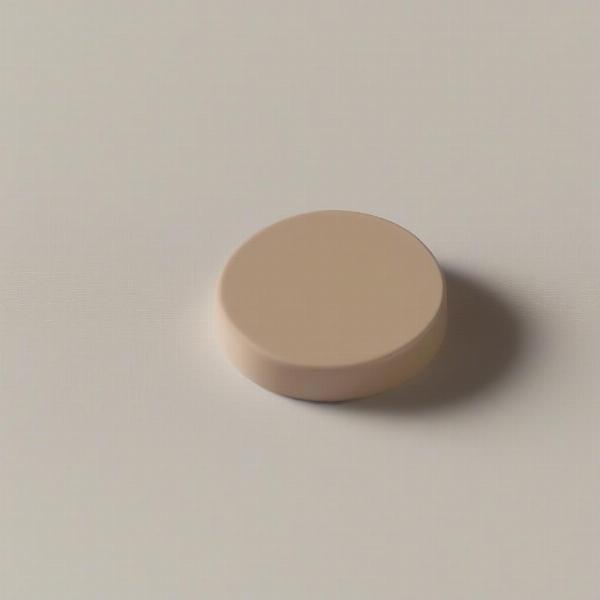Pardale, also known as pyrantel pamoate, is a common and effective dewormer used in dogs to treat certain types of intestinal parasites. Understanding what Pardale is, how it works, and when to use it is crucial for responsible dog ownership. This article will explore everything you need to know about Pardale for dogs, from dosage and administration to potential side effects and precautions.
Understanding Pardale (Pyrantel Pamoate)
Pardale works by paralyzing specific types of worms, including roundworms and hookworms, preventing them from absorbing nutrients and ultimately leading to their expulsion from the dog’s digestive system. It’s important to note that Pardale is not effective against all types of worms, such as tapeworms or whipworms. Therefore, accurate diagnosis of the specific parasite infestation is essential for effective treatment. Your veterinarian can perform fecal tests to identify the type of worm present and recommend the appropriate deworming medication.
 Pardale tablets for dogs
Pardale tablets for dogs
Dosage and Administration of Pardale for Dogs
The dosage of Pardale for dogs depends on the dog’s weight and the severity of the infestation. It’s crucial to follow your veterinarian’s instructions regarding the correct dosage and frequency of administration. Generally, Pardale is given as a single dose, but in some cases, a repeat dose may be necessary after a few weeks. Pardale is available in various forms, including tablets, capsules, and liquid suspensions. Always administer the medication as directed by your veterinarian, and ensure your dog consumes the entire dose.
Potential Side Effects and Precautions
Pardale is generally considered safe for dogs, but like any medication, it can cause some side effects. These side effects are usually mild and transient, including vomiting, diarrhea, loss of appetite, and lethargy. If you observe any severe or persistent side effects, contact your veterinarian immediately. Certain precautions should be taken when administering Pardale. Pregnant or lactating dogs should only receive Pardale under the strict supervision of a veterinarian. Also, inform your veterinarian about any other medications your dog is currently taking to avoid potential drug interactions.
When to Use Pardale for Dogs
Pardale is typically used to treat existing worm infestations diagnosed through fecal testing. It can also be used preventatively in areas with high parasite prevalence. Regular deworming is especially important for puppies and dogs living in multi-pet households. Discuss a suitable deworming schedule with your veterinarian based on your dog’s lifestyle and risk factors.
Preventing Worm Infestations in Dogs
While Pardale is effective in treating certain worm infestations, preventing these infestations is equally crucial. Maintain good hygiene by regularly cleaning up your dog’s feces, especially in shared areas. Avoid feeding your dog raw or undercooked meat, as this can be a source of parasites. Regularly wash your dog’s bedding and toys to minimize the risk of re-infestation.
what is pardale-v for dogs used for
Recognizing Signs of Worm Infestations
Knowing the signs of worm infestations in dogs can help you seek timely veterinary care. Common signs include a pot-bellied appearance, vomiting, diarrhea (sometimes with blood), weight loss, dull coat, and scooting. If you notice any of these signs, consult your veterinarian for diagnosis and treatment.
Alternatives to Pardale
While Pardale is a commonly used dewormer, other deworming medications are available for dogs. These include fenbendazole, praziquantel, and milbemycin oxime. Your veterinarian can recommend the most appropriate dewormer based on the specific type of worm infestation and your dog’s individual needs.
where can i buy dewormer for dogs
Conclusion
Pardale is a valuable tool in the fight against intestinal parasites in dogs. By understanding how Pardale works, when to use it, and the necessary precautions, you can help keep your furry friend happy and healthy. Remember to consult your veterinarian for accurate diagnosis and personalized treatment recommendations. Regular veterinary checkups and fecal examinations are essential for ensuring your dog’s overall well-being.
dosage for pyrantel pamoate in dogs
FAQ:
-
How often should I deworm my dog with Pardale? Your veterinarian will determine the frequency based on your dog’s individual needs and risk factors.
-
Can I buy Pardale over the counter? While some forms may be available over the counter, it’s always best to consult your veterinarian before administering any medication to your dog.
-
What should I do if my dog vomits after taking Pardale? Contact your veterinarian for advice. They may recommend re-dosing or suggest an alternative administration method.
-
Is Pardale safe for puppies? Yes, but the dosage needs to be adjusted based on the puppy’s weight. Always consult your veterinarian.
-
Can Pardale prevent all types of worms? No, Pardale is not effective against all types of worms. It primarily targets roundworms and hookworms.
-
What if my dog still has worms after taking Pardale? A repeat dose may be necessary, or your veterinarian may prescribe a different dewormer.
-
Are there any natural alternatives to Pardale? While some natural remedies exist, their effectiveness may vary. Consult your veterinarian before using any alternative treatments.
About ILM Dog:
ILM Dog is your trusted resource for expert advice on dog care and wellbeing. We provide comprehensive information on dog breeds, health, training, nutrition, grooming, and much more. From puppy care to senior dog care, we are dedicated to helping you navigate every stage of your dog’s life. Contact us for personalized guidance: Email: [email protected], Phone: +44 20-3965-8624.